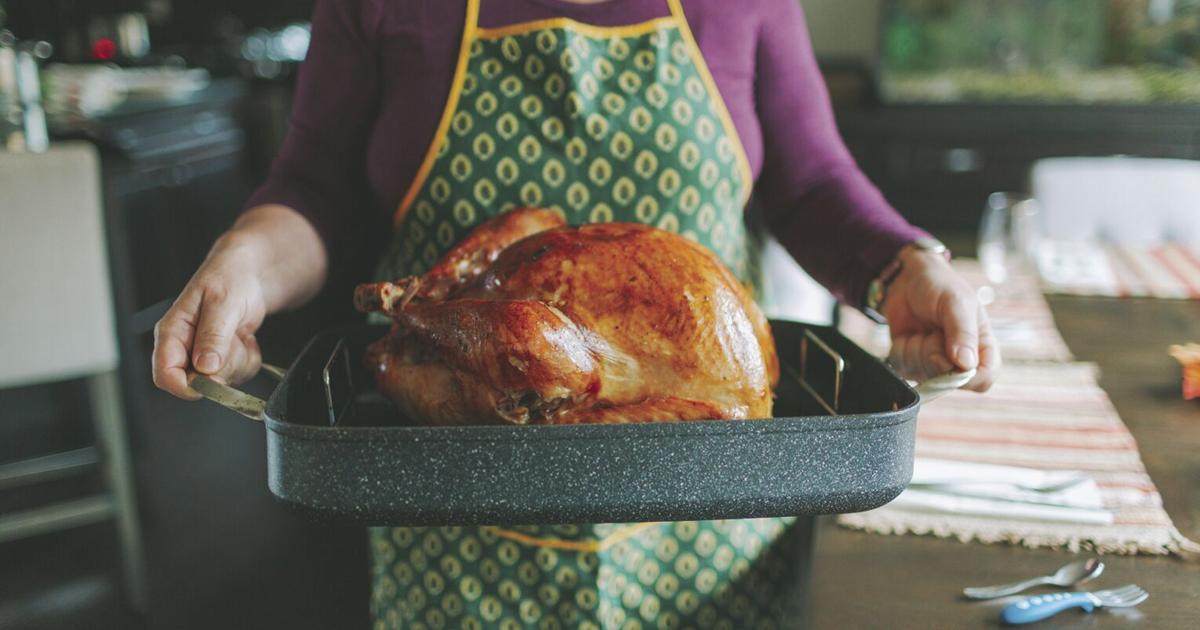VALDOSTA – Thanksgiving is just over a week away and Georgia Department of Public Health’s South Health District wants to make sure you and your loved ones are protected from food borne illnesses.
Whether you are frying, baking or smoking your bird this Thanksgiving, it is important to make sure you are properly handling and preparing your poultry.
Thawing
Make sure to thaw your turkey in the refrigerator in a container or leak-proof plastic bag in cold water that is changed every 30 minutes. The Centers for Disease Control and Prevention (CDC) recommends never thawing your turkey on the counter. When meat is thawed at room temperature for more than two hours bacteria can begin to grow and that bacteria can make you very sick.
Handling
It is important to remember that raw poultry can contain harmful bacteria such as Campylobacter and Salmonella. To avoid contact and spread of these bacteria it is important to follow the proper handling processes. When handling raw turkey make sure to wash your hands and kitchen surfaces often. The CDC recommends washing your hands for 20 seconds with soap and water before, during, and after preparing food and before eating.
Preparing
When you are ready to begin preparing your Thanksgiving feast make sure to keep your food separated. Raw meat, poultry and eggs can all contain harmful bacteria that can easily spread to other foods. Make sure to use separate cutting boards and plates for raw products and wash all utensils, boards and plates with hot soapy water after use. You should also store raw meats separate from other foods in your fridge to avoid accidental cross contamination or leaking.
Stuffing
Many families choose to enjoy their turkey with a side of stuffing (or dressing). To make sure your stuffing is thoroughly cooked it is best to cook it in a casserole dish on its own. This helps avoid cross contamination and makes it easier to know when your stuffing and bird have hit a safe internal temperature. If you choose to cook your stuffing inside the turkey, make sure to wait to put the stuffing into the turkey until right before you begin cooking. You should use a food thermometer to make sure the center of the stuffing reaches 165°F. Anything less makes it possible for bacteria to survive and can cause food poisoning. You should also allow the stuffing to sit for at least 20 minutes after taking the turkey out of the oven to allow it to cook a little longer.
Cooking
Safely cooking a turkey can be intimidating but knowing what the safe cooking temperatures are can make it less daunting. The CDC explains, “Set the oven temperature to at least 325°F. Place the completely thawed turkey with the breast side up in a roasting pan that is 2 to 2-1/2 inches deep. Cooking times will vary depending on the weight of the turkey. To make sure the turkey has reached a safe internal temperature of 165°F, check by inserting a food thermometer into the center of the stuffing and the thickest portions of the breast, thigh, and wing joint. Let the turkey stand 20 minutes before removing all stuffing from the cavity and carving the meat.”
“The holidays should be a time for families to come together and have fun. Serving an improperly prepared or handled meal can quickly have your Thanksgiving take a turn for the worst,” District Environmental Health Director Chris Calhoun said. “In addition to following proper cooking times and food handling procedures, make sure you are also trusting your senses. If something looks, smells or tastes ‘off,’ don’t serve it. Help protect yourself and the people you love this season by taking the steps to safely prepare and serve your holiday meal.”
Whatever you are cooking this holiday season (or any time of the year), always prioritize food safety. Avoid cross contamination, clean your produce, wash your hands often and cook everything thoroughly to help protect yourself and your loved ones from food borne illnesses.





More Stories
Avocado Cacao Mousse – JSHealth
Janelle Brown on Garrison’s Mental Health Before His Death
How To Finally Beat Insomnia